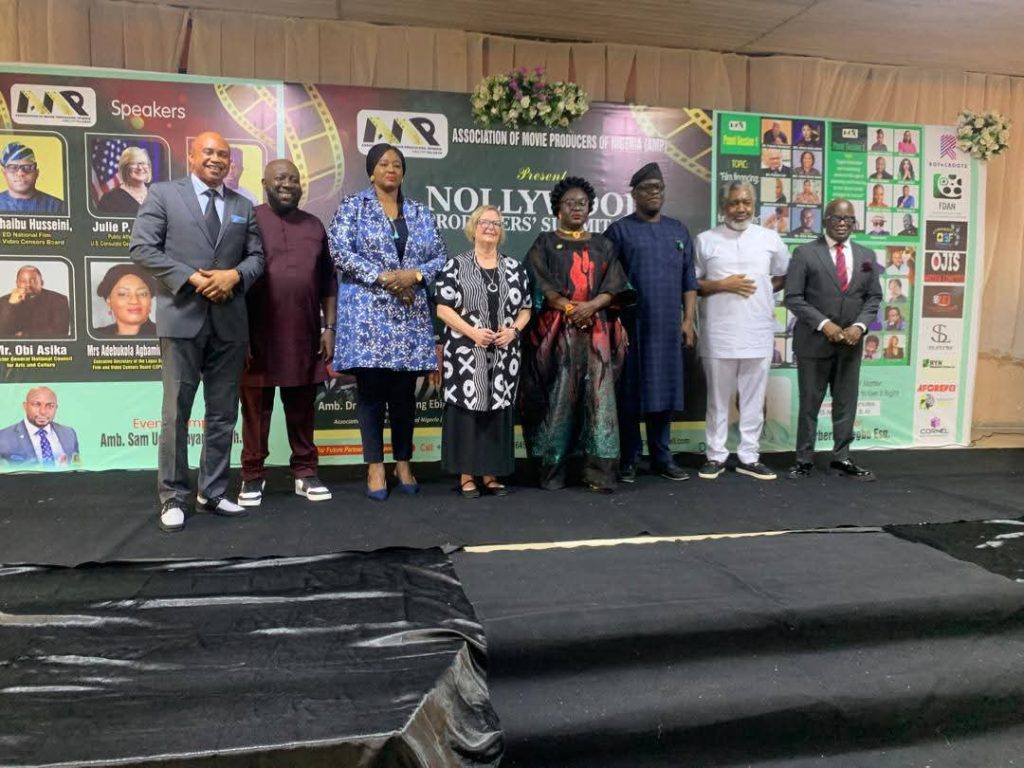The Lagos State government has reaffirmed its commitment to boosting the Nollywood film industry through a series of supportive initiatives and strategic partnerships.
This announcement was made by Adebukola Agbaminoja, the Executive Secretary and CEO of the Lagos State Film and Video Board, at the Nollywood Producer’s Summit.
Agbaminoja highlighted the government’s plans to foster talent and innovation through a partnership with “Plotweaver” to host a storytelling competition.
READ ALSO: Lagos govt seeks private investment to modernise water supply
The winning entry will be produced as a short film, a tangible example of the state’s dedication to developing local creative content.
The government is also planning to implement new policies to attract investment, which include offering tax breaks and grants to filmmakers.
Furthermore, there are plans to invest in infrastructure and training programs to equip aspiring professionals with essential industry skills.
In a related development, the U.S. government, through its Consulate General in Lagos, has expressed interest in collaborating with Nollywood.
According to Julie McKay, the Public Relations Officer of the U.S. Consular General Office, the U.S. intends to provide foreign training for Nigerian film professionals.
The goal is to enhance their skills to produce high-quality films and content that can be distributed on platforms like Netflix and other international channels, thereby expanding the market for both local and foreign creatives.
Meanwhile, Dr Shuaib Hussieni, the Executive Director of the National Film and Video Censors Board, used the opportunity to address a major challenge in the industry.
He expressed concern over some film producers who bypass the official censorship process and instead forge permits and clearance certificates.
READ ALSO: TikTok Star Peller challenges N36m Lagos tax demand
Hussieni urged filmmakers to follow proper procedures to ensure their films meet the required quality and moral standards.
He warned that this practice often leads to the production of low-quality or inappropriate content that is against government policy.



